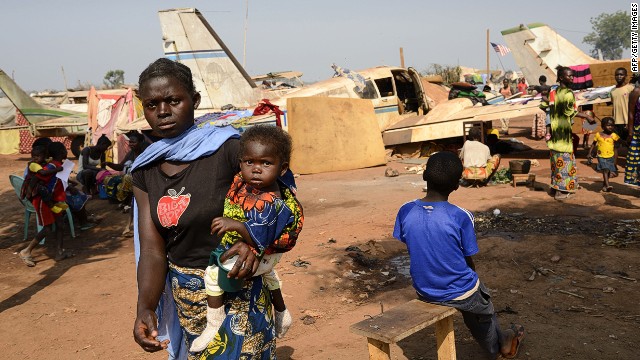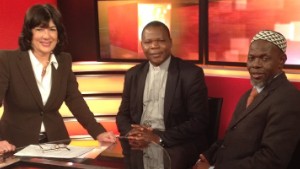
The U.N. estimates more than half the population of the Central African Republic has been affected by the humanitarian crisis.
The U.N. Security Council voted Tuesday to
not only continue its peacekeepers' mission in the tumultuous Central
African Republic but to authorize the use of force by European Union
troops there, the world body said.
The decision came just
over a week after the nation tapped Catherine Samba-Panza, the mayor of
the capital of Bangui, as its interim president.
She replaced Michel
Djotodia, the leader of the Seleka rebels who seized power in March only
to step down earlier this month after failing to halt the escalating
violence in the country.
Those dangers remain high, the U.N. said in a news release Tuesday explaining the Security Council's vote.

Archbishop and imam unite for CAR
Specifically, the United
Nations pointed to the "increasing cycle of violence and retaliation"
and the "continuing deterioration of the security situation" in the
Central African Republic.
The U.N. peacekeeping
mandate in that country now extends through January 31, 2015. The new
vote also includes banning travel and freezing assets of some involved
in the conflict, on top of an existing arms embargo.
The resolution was adopted unanimously by the 15-member Security Council.
The latest vote also
urges Samba-Panza's government "to speed up" -- with the United Nations'
support -- progress toward 'free and fair' elections" to be held no
later than February 2015.
The Central African
Republic, a former French colony, plunged into chaos last year after a
coalition of rebels dubbed Seleka ousted President Francois Bozize, in
the latest in a series of coups since the country gained independence in
1960.
Rebels infiltrated the
capital in March, sending Bozize fleeing to Cameroon. Djotodia, one of
the Seleka leaders, became the nation's interim leader.
Since then, political turmoil and violence have spiraled.
Seleka is a
predominantly Muslim coalition, and to counter the attacks on Christian
communities, vigilante Christian groups have fought back. The United
Nations -- estimating more than half the country's population is
affected by the worsening humanitarian crisis -- has said it fears a
genocide is brewing, and aid agencies warn of a humanitarian crisis.
France has taken the
lead among European nations by sending 1,600 of its troops to the
country. They join about 4,000 African troops.
No comments:
Post a Comment